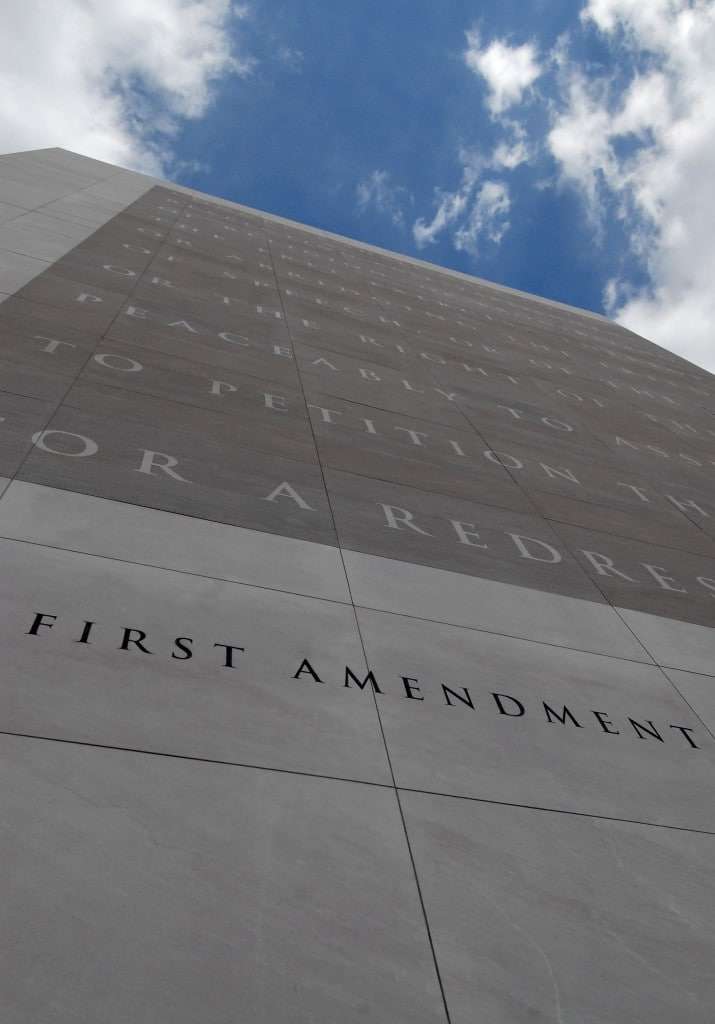The Volokh Conspiracy
Mostly law professors | Sometimes contrarian | Often libertarian | Always independent
'Nonmedia' speakers don't get full First Amendment protection, rules a Texas Court of Appeals panel

Do First Amendment protections - for instance, the various rules that protect libel defendants - apply to all speakers? Or are some of them limited to members of "the media," however that might be defined?
As I've explained before, the great majority of precedents say that "the freedom of the press" extends to all who use mass communications, and that freedom of speech offers the same protection to speakers who use non-mass communications. The freedom of the press is the freedom for all who use the printing press and its technological descendants - not just a freedom for a specific industry or profession, such as the media or professional journalists.
This was the nearly unanimous view until about 1970; and even since then, it has been the view of the great majority of lower court precedents, and no Supreme Court precedent takes the contrary view. Indeed, the Citizens United decision expressly stresses that "We have consistently rejected the proposition that the institutional press has any constitutional privilege beyond that of other speakers." As the Ninth Circuit recently held in Obsidian Finance Corp. v. Cox,
The protections of the First Amendment do not turn on whether the defendant was a trained journalist, formally affiliated with traditional news entities, engaged in conflict-of-interest disclosure, went beyond just assembling others' writings, or tried to get both sides of a story. As the Supreme Court has accurately warned, a First Amendment distinction between the institutional press and other speakers is unworkable[.]
This having been said, the Supreme Court did flag the question as unresolved in several libel cases from the late 1970s to 1990, and a few lower court precedents do conclude that the Supreme Court's case law protecting libel defendants applies (in whole or in part) only to media defendants. I'm sorry to say that a Texas Court of Appeals panel just joined this small minority, in the April 9 Cummins v. Bat World Sanctuary decision.
In Cummins, Mary Cummins harshly criticized Bat World Sanctuary (a sanctuary for bats, naturally) and its head, Amanda Lollar. Lollar and Bat World sued for, among other things, libel, and won $3 million in actual damages, plus $3 million in punitive damages.
Now one of the Court's First Amendment libel cases, Philadelphia Newspapers v. Hepps (1986), sets forth a narrow but important rule: In libel cases brought on matters of public concern (whether the cases are brought by public figures or private figures), the burden of proof of falsehood must be on the plaintiff. The traditional libel rule put the burden of proving truth on the defendant, but the First Amendment, the Court held, forbade that in public-concern cases. This will matter in only a limited set of cases: cases where the evidence is at least roughly balanced. But in those cases, the Court held, the tie has to go to the speaker.
In the process, though, the Court noted that it need not "consider what standards would apply if the plaintiff sues a nonmedia defendant." And though lower courts have generally held that all the First Amendment libel rules do apply to "nonmedia" defendants (see footnote 321 of this article), the Cummins court disagreed (without much analysis):
As noted above, neither the United States Supreme Court nor the Supreme Court of Texas has required a private plaintiff to prove the falsity of defamatory statements in suits against nonmedia defendants, even when the statements are on matters of public concern. Lollar is not a public figure, and Cummins is not a media defendant, and therefore the defamatory statements are presumed false.
As I've mentioned, this is an unfortunate result, and also requires Texas courts to now decide who counts as "media" for First Amendment purposes. Do book authors qualify? Filmmakers? Academics? Bloggers? (Does it matter whether they make money blogging? Whether they blog on The Washington Post site, even if they are not newspaper employees?)
It seems unlikely that either the Texas Supreme Court or the U.S. Supreme Court will agree to hear this case, partly because the Court of Appeals concluded that the bottom-line result would have been the same regardless of how the nonmedia rights issue was decided. But I hope that eventually higher courts will overrule the ruling.
UPDATE: If you're interested in seeing the briefs in the case, here they are: Cummins' opening brief, Lollar & Bat World Sanctuary's brief, Cummins' reply brief, Public Citizen's amicus letter, and Cambodia Wildlife Sanctuary and Elephants in Crisis.org's amicus letter.


Show Comments (0)